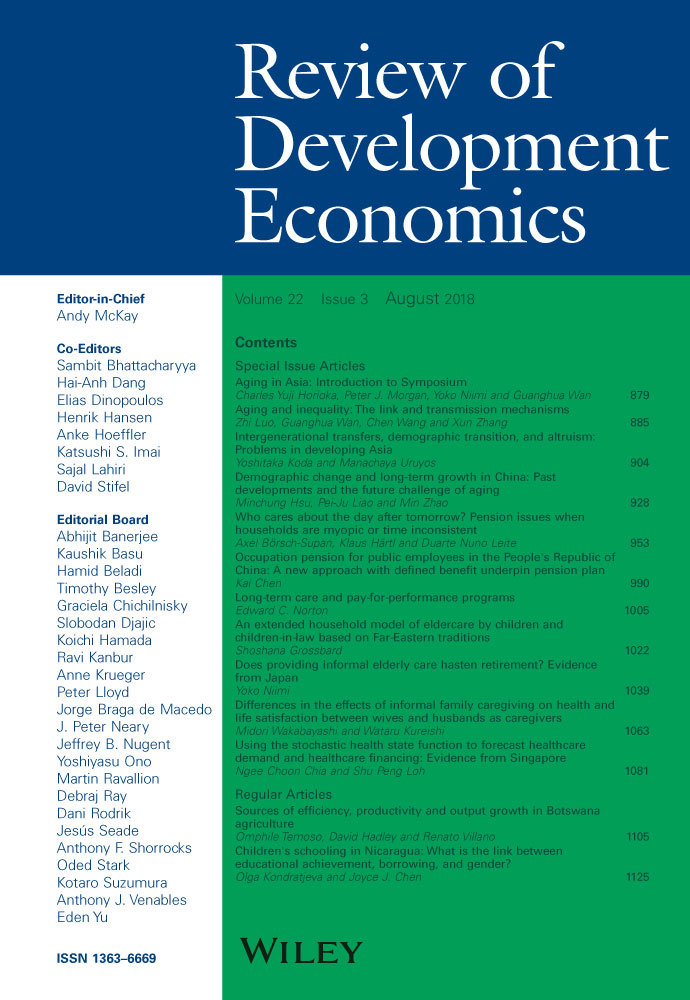Aging in Asia: Introduction to Symposium
Abstract
Population aging (an increase in the share of the elderly in total population) is occurring in many, if not most, countries in the world, including those in Asia. Both economists and policymakers warn that population aging can have many deleterious effects on a country's economy including a decline in its saving rate, the emergence of a labor shortage, a deterioration in government finances owing to increased spending on old-age related programs, and reduced innovation and productivity growth. It is therefore imperative for countries to prepare themselves for the advent of an aged society. The emerging and developing countries in Asia are no exception, with the region generally lacking adequate systems in such areas as long-term care, public pensions, and health insurance. Against this background, an international workshop on “Aging in Asia” was held in Kitakyushu City, Japan, on November 15 to 16, 2016. The workshop was jointly sponsored by the Asian Development Bank Institute and the Asian Growth Research Institute and was organized by Charles Yuji Horioka, Peter J. Morgan, Yoko Niimi, and Guanghua Wan. This special issue of the Review includes nine papers presented at this workshop plus one paper that was not presented there but was written by one of the workshop participants. All of these papers underwent the usual rigorous refereeing process of this Review.




